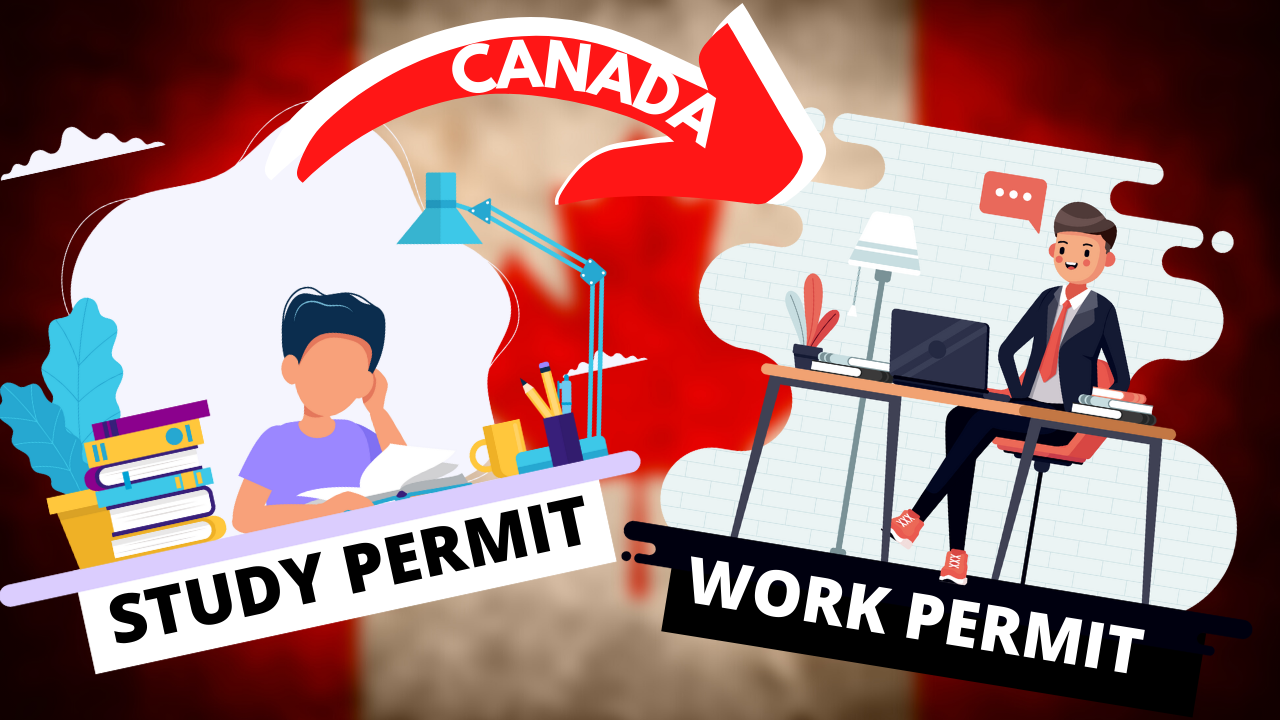In today’s blog update, we will tell you if you can change a Study Permit to a Work Permit
Completing a degree from a Canadian designated learning institution is a good option for migrants desiring to ultimately work and settle in Canada. At some point in your studies, you might think of starting to work in Canada. Please keep in mind that the process of changing your study permit to a work permit will rely on where you are at in your immigration program.
Work While Studying:
Please keep in mind that if you are presently enrolled in full-time studies at a Canadian educational institution, you might be entitled to work part-time, or in some scenarios, full-time.
Study permit holders are allowed to work up to 20-hours weekly, or full-time during a scheduled break. You are not required to apply for a separate work permit to work part-time as a Canadian study permit holder. On the other hand, it must be mentioned on your study permit that you are allowed to work in Canada. If you are entitled to work, but your study permit does not mention that you may work or accept employment in Canada, you can apply to have your permit changed.
Specific educational programs in Canada obligate students to complete a co-op or internship work placement as segment of their program of study. If you fulfil the obligations for a co-op or intern work permit, you may be entitled to work full-time for part of your studies.
Switching To A Work Permit After Completing Your Education:
After completing a degree at a designated learning institution (DLI), you may be entitled to apply for a post-graduation work permit. Post-graduation work permits are allotted to international students after graduation from a DLI and can be allotted for up to three years.
The advantage of a post-graduation work permit is that it is not linked to any specific employer, occupation, or location. This is also regarded as an open work permit. With an open work permit, you may be employed in any role, anywhere in Canada.
After completing the obligations for your studies, you have 180 days to apply for an open work permit. An application for a post-graduate work permit can be made from outside Canada or inside Canada.
Switching To A Work Permit Before Completing Your Studies:
If you plan to stop studying in Canada before you have completed your degree, getting a work permit in Canada will obligate a Labour Market Impact Assessment (LMIA), with few exemptions. That means locating a valid Canadian job offer with a company eager to back your work permit application by obtaining an LMIA.
An LMIA proves that the Canadian employer was not able to find a permanent resident or citizen to fill the job role. Individuals on a closed work permit are allowed less flexibility than those on an open work permit. Unlike an open post-graduate work permit, a closed LMIA work permit is linked to a specific employer, role, and locality.
It is essential to note that your study permit would no longer be deemed valid after you stop studying. As such, you need to inform Immigration, Refugees, Citizenship Canada (IRCC) that you are ending your studies in Canada. If you do not have status in Canada, you will be required to leave Canada while waiting for your work permit application to process.
This is the end of today’s blog update. We hope you found this blog useful. Please don’t forget to support us by subscribing to our newsletter and sharing this blog with your friends and family on Facebook, Whatsapp, and Twitter.
Recent Posts:
- Fast-Track To Canada Immigration For 38 Technology Jobs
- Immigrate To Canada With 5 Easy Ways
- Travel Updates For Unvaccinated Travelers
- Canada Welcomes New Permanent Residents
- ArriveCAN Apps Uses To Be Expanded












